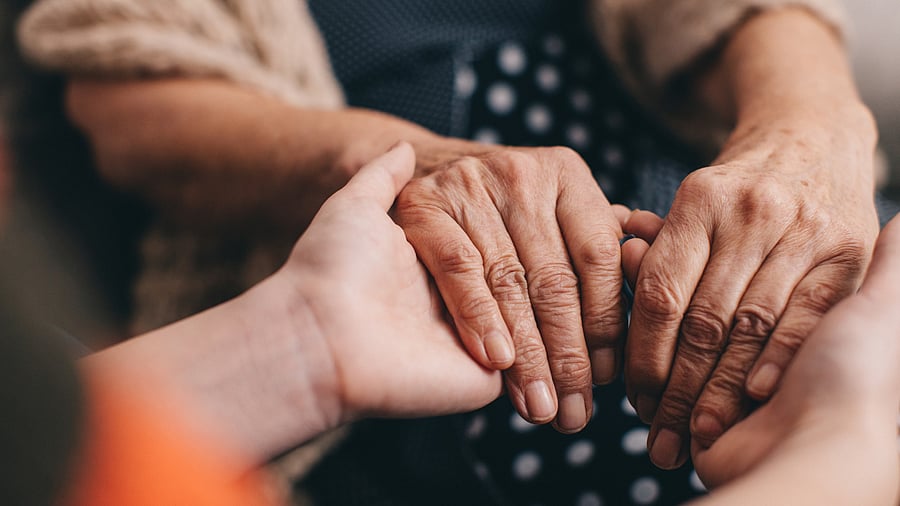
Image for representation.
Credit: iStock Photo
Bengaluru: The union and state governments have yet to include Huntington’s disease in the rare category under the National Policy for Rare Diseases, a demand raised by patients and caregivers in 2024.
Recognition will enable government support for the incurable genetic disorder that affects cognition, psychiatric health, and physical movements.
The condition is usually inherited from one parent. The Huntingtin (HTT) gene on chromosome 4 leads to the amino acid sequence called CAG. More than 40 repetitions of CAG in genetic testing indicate Huntington’s disease.
Dr Sujith Kumar, a neurologist, said: "The number of repeats of CAG sequence determines the severity of the disease. The higher the number, the higher the intensity of the disease, and it starts early."
Cognitive decline in patients mirrors Alzheimer’s and dementia, affecting memory and executive functions. Psychiatric issues include depression, anxiety, irritability, and psychosis, often leading to suicidal ideation.
Physical symptoms include chorea, sudden dance-like movements, and body stiffness. Over time, patients become incapacitated both mentally and physically. They are also prone to heart disease and pneumonia, common causes of death. Some patients with severe psychiatric issues end their lives by suicide.
While anti-depressants help with psychiatric problems and tetrabenazine controls chorea, there is no cure.
Dr Pramod Krishnan, HoD and Consultant (Neurology, Epileptology and Sleep Medicine), said: "Therapy is focused on medications to alleviate individual symptoms, along with physiotherapy, speech and swallow therapy. Promising therapies are at various stages of clinical trials, including gene therapy, antisense oligonucleotides and monoclonal antibodies."
Gene testing
The availability of genetic testing has improved diagnosis, as Huntington’s was earlier misdiagnosed as dementia, Alzheimer’s or Parkinson’s.
"Earlier, the samples had to be sent abroad, which was not affordable. The availability of the test has helped in identifying cases," said Dr Guruprasad Hosurkar, another neurologist.
Cases in children
Cases in children are fewer than in adults. Children affected live no more than 15 to 20 years.
"Body stiffness and delay in speech are some of the symptoms in children. Like Down Syndrome, Huntington’s cannot be identified when the woman is pregnant," said Dr Shruti, a paediatrician.